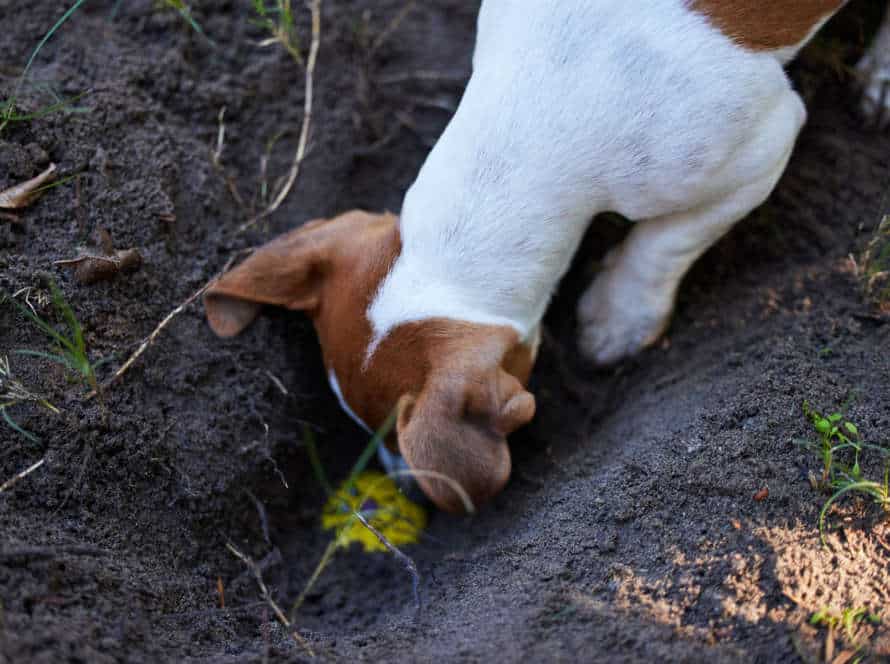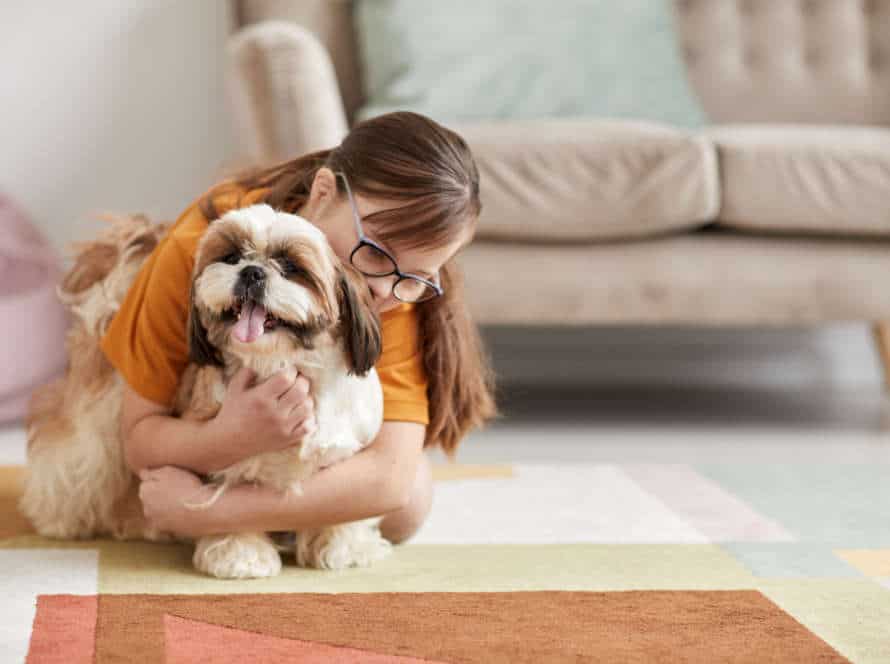The Role of Breed in Puppy Aggression: Fact or Fiction?
Puppy aggression is a debated topic. All breeds of puppies can show aggressive behavior, based on the environment and their individual character. Studies suggest that breed has no impact on aggression. Factors like lack of socialization, abuse, and neglect can lead to puppies being aggressive.
Though, Pit Bulls and Rottweilers are linked with more intense and frequent aggression. It’s wrong to stereotype breeds based on one or two occurrences. Responsible breeding, socialization, and training are key to raising all puppies, regardless of breed, to be pleasant and friendly.
Pro tip: When adopting a puppy, take a look at the litter and observe their behavior. Plus, find a reliable breeder who focuses on socialization and temperament when breeding.
The nature vs. nurture debate in dog behavior
Animal breeding and its role in behavior is a commonly debated topic. Those who support ‘nature’ state that genetics and inherited traits affect behavior. Those who support ‘nurture’ say environment, training, and socialization are influential.
When it comes to puppy aggression, is it the breed or environmental factors that make the difference? Let’s take a look at the debate and examine the effect of breed on puppy aggression.
The role of genetics in dog behavior and aggression
Genetics has an impact on a dog’s behavior and aggression. But, it does not decide their future. Nature vs. Nurture in doggy behavior suggests that although genetics provide a basis, environment and training can alter their nature.
Studies have proven certain breeds are more prone to certain behavior. But, this does not signify each dog of the same breed will react similarly. While genetics cannot be changed, responsible breeding can reduce the risk of inherited behavioral problems.
Socialization and suitable training can help avert or solve behavioral issues in dogs, disregarding their breed or genetics. Owning a pet responsibly means understanding the breed and genetics of your dog, and investing in socialization and proper training to shape their behavior.
The importance of the environment
The environment has a critical role when it comes to the nature vs. nurture debate in dog behavior. Particularly, in the part of breed in puppy aggression. Certain breeds may have an inclination towards aggression. However, studies show the environment a puppy is raised in can have a big effect on their behavior.
Positive reinforcement training, socialization, and exposure to different stimuli can all influence a puppy’s temperament and behavior. As responsible pet owners, it’s vital to give a safe and enriching environment for our furry friends, regardless of breed.
If puppy aggression happens, it’s important to address it right away and get help from a professional trainer or behaviorist. A dog’s conduct is not only based on their breed, but also the environment they were raised in.
Pro tip: Positive reinforcement training and proper socialization can be very effective in avoiding puppy aggression and boosting positive behavior in dogs.
The potential interaction between genetics and environment
The debate between nature and nurture is long-standing in the field of animal behavior, especially concerning dogs. Genes do affect a pup’s behavior, yet their environment wields a major influence on their personality and behavior.
People often blame a pup’s breed for aggressive behavior, yet studies prove that environment and teaching are more important than breed. Remember: socialization is key to shaping a pup’s behavior. Early socialization and training can create a huge difference in a pup’s demeanor and how they act towards people and other animals.
Nutrition also has a role in a pup’s conduct. Feeding them proper, high-quality food will help keep their mind and body healthy.
Both genetics and environment influence a pup’s behavior. It is necessary to focus on the pup’s environment to assure they have positive experiences and interactions with humans and other animals.
Breed-specific dog aggression stereotypes
Puppy aggression is a topic of discussion. Certain breeds thought to be more prone to aggression than others. Is this true? Evidence suggests there may be a link. Yet, the relationship between breed and aggressive behaviour is puzzling and debated. In this article, we’ll go over the facts and fiction behind breed-specific aggression in puppies.
Common myths and misconceptions about aggressive breeds
Myths and misconceptions about aggressive dog breeds can lead to unfair stereotypes and breed-specific discrimination. Let’s take a look at some of the most common ones.
- “Aggressive breeds will attack people”: No breed is naturally aggressive towards humans. Aggression in dogs often results from inadequate training, socialization, or mistreatment.
- “Pit Bulls are dangerous”: Pit Bulls are often labeled as aggressive, but studies show they are no more aggressive than other breeds.
- “Small breeds can’t be aggressive”: Small breeds may seem harmless, but if not trained and socialized, they can still show aggression.
- “Muzzles stop aggressive breeds”: Muzzling is a short-term solution. It should be used with proper training and behavior modification to address the root cause of aggression.
By understanding these myths and stereotypes, we can strive for fairness and compassion in our relationship with our furry friends.
The impact of media and culture on breed stereotypes
Media and culture have a big effect on forming breed-based stereotypes and encouraging dog aggression related to specific breeds. This can be bad for these breeds, resulting in unfair treatment and abandonment.
The media often portrays certain breeds as aggressive or dangerous, which leads to laws preventing people from owning these breeds. Cultural beliefs and traditions also shape breed-based stereotypes, causing some to be more popular than others.
However, research shows that breed is not always a sign of aggressive behavior in dogs. Early socialization, training, and environmental conditions are also important.
It is important to be educated about the impact of media and cultural stereotypes on dog breeds and to promote responsible dog ownership by focusing on a dog’s individual behavior and temperament, rather than their breed.
Remember: always be cautious when interacting with a dog, regardless of its breed, without any preconceptions.
The importance of individual temperament and behavior assessment
Assessing a pup’s temperament and behavior is crucial in understanding its personality. Stereotypes of certain breeds being aggressive are inaccurate – each dog is unique!
Temperament testing is key. It can:
- Spot potential behavior problems early.
- Give owners guidance on working with their dog’s personality.
- Help match pooch personalities to the owner’s lifestyle.
- Reduce dog bites, fights and other negative interactions.
Remember – breed doesn’t determine behavior. Individual assessments are needed. Pro tip – contact a pro dog trainer to understand and train your pup!
Understanding aggression triggers in puppies
Looking at aggression triggers in puppies, it is often thought that certain breeds are more prone to aggression. Is this true? This article looks at the evidence. We will review the scientific literature to see if genetics, environment and training have an effect on puppy aggression. Thus giving us an accurate picture of the facts.
Early socialization and behavioral training for puppies
Early socialization and behavioral training are key to preventing aggression in puppies. It’s also helpful to know the triggers and to not believe myths about breed-specific aggression. Here are some tips for early socialization and behavioral training:
- Introduce your pup to different people, animals, and environments
- Give treats and praise when they act positively
- Use positive reinforcement techniques
- Establish rules and boundaries, then stay consistent
Although breed can impact aggression, other things like breeding, socialization, and temperament also matter. Give your puppy early socialization and behavioral training for a happy relationship with you and your furry friend.
Types of aggression triggers and warning signs
Puppies can have aggressive behavior due to multiple triggers. Knowing these triggers and watching for signs of aggression can help keep puppies and their owners safe.
Common triggers of aggression include:
- Fear – Feeling scared or anxious may lead to growling, barking, or biting.
- Resource Guarding – Acting protective of things they own like food, toys, etc. can cause them to be aggressive around people or other pets.
- Dominance – Trying to be the leader can lead to aggressive behavior towards other dogs or even their owners.
Warning Signs: Growling, barking, snarling, raised fur/hackles, biting, lunging, ears pinned back, rigid stance, staring, showing teeth.
By recognizing these triggers and warning signs, puppy owners can work to prevent and manage aggression in their pets.
Addressing aggressive behavior in puppies: training and management techniques
Addressing aggression in puppies needs both the right management and training techniques. Knowing the triggers of aggression, like fear and overstimulation, is key. Breed isn’t always important in predicting puppy aggression. We should consider every puppy as an individual and provide socialization and training.
Management techniques, like proactive socialization, positive reinforcement and consistent training, can help prevent aggressive behaviours. Desensitization and counter-conditioning are effective approaches for treating existing aggression. If severe aggression occurs, seek the help of a professional trainer or behaviorist.
Responsible dog ownership and management
Responsible ownership is key when managing puppy aggression, no matter the breed. Certain breeds may have a reputation for aggression, yet this can be exaggerated. It’s essential to recognize the influence of both nature and nurture in forming a pup’s temperament.
This section will explore the part of responsible ownership and management in dealing with puppy aggression.
The importance of breed research and choosing the right dog for your lifestyle
Dog breed research is vital for those wanting to own a pup. Different breeds have varied features and need different environments. It’s important to pick the right breed for your lifestyle, to make sure you and your furry friend have a long and happy life together.
When searching for a pooch, consider factors such as breed size, energy levels, and grooming requirements that fit your home. For example, those who love running or hiking should go for larger breeds, while aged pet owners may opt for smaller, less energetic dogs.
Researching breeds is vital to avoid puppy aggression. Some breeds may be prone to aggression, while others aren’t. It’s important to take these tendencies into account, and give your pup the right socialization and training for appropriate behaviour.
Doing the right breed research can help you create a lifelong bond with your pup.
Ongoing training and socialization for all dogs
Training and socialization are key for all dogs. It doesn’t matter what breed, age, or temperament they have. Responsible dog ownership requires this. It helps stop aggression in puppies.
Socialization means exposing your pup to new people, animals, and surroundings. Do this positively and in control. This helps them understand how to act in different situations. Plus, it reduces the chance of fear-based aggression.
Training teaches them obedience. It helps them know their boundaries and what’s expected of them. This helps stop aggression by setting up clear communication and teaching them to respond to commands.
Every dog is individual. Keep training and socializing them throughout their life. This will make sure they stay in good behavior and are a happy part of the family.
Techniques for managing and preventing aggressive behavior in dogs
Breed impacts a dog’s behavior, but it’s not the only factor. Ownership and management techniques can stop aggressive behavior in dogs. Here are some tips:
- Socialization – Give your dog exposure to different people, dogs, and environments early on.
- Training – Teach your dog commands and redirect their behavior when needed.
- Exercise and play – Dogs need exercise and playtime to release energy and avoid boredom.
- Positive reinforcement – Reward your dog’s good behavior to encourage them to do it again.
- Supervision – Keep an eye on your dog around children or other animals, and use a leash or crate if needed.
If your dog shows aggression, get help from a pro trainer or behaviorist. With patience, consistency, and responsible ownership, aggressive behavior in dogs can be managed and prevented.
Frequently Asked Questions
Q: Does breed play a role in puppy aggression?
A: The role of breed in puppy aggression is a complex and controversial topic. While certain breeds may have a genetic predisposition towards certain behaviors, it is important to remember that individual temperament and behavior is largely determined by individual upbringing, early socialization, and training.
Q: Are certain breeds more aggressive than others?
A: Some breeds are commonly associated with higher levels of aggression, such as Pit Bull Terriers, Rottweilers, and German Shepherds. However, it is important to keep in mind that any breed can potentially display aggressive behavior, and individual temperament and behavior is largely determined by individual upbringing, early socialization, and training.
Q: Can aggressive behavior in puppies be trained out?
A: Yes, aggressive behavior in puppies can potentially be trained out through appropriate socialization and training. However, it is important to seek the help of a professional dog trainer to properly address and manage aggressive behavior, as it can be a complex and potentially dangerous issue.
Q: Should certain breeds be avoided if you have children?
A: While certain breeds may have a genetic predisposition towards certain behaviors, individual temperament and behavior is largely determined by individual upbringing, early socialization, and training. It is important to do thorough research and choose a breed that is suitable for your family’s lifestyle and personality, regardless of breed prejudices.
Q: Can puppy aggression be caused by poor breeding practices?
A: Puppy aggression can potentially be caused by poor breeding practices such as lack of socialization or exposure to positive experiences, as well as exposure to early stress or trauma. It is important to seek a reputable breeder that prioritizes puppy socialization and health.
Q: Can neutering or spaying reduce aggressive behavior in puppies?
A: Neutering or spaying can potentially reduce aggressive behavior in puppies, particularly aggression related to mating behaviors. However, it is important to consult with a veterinarian to determine the most appropriate timing and method for neutering or spaying your puppy.







